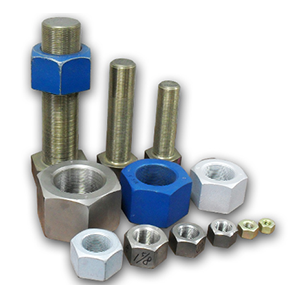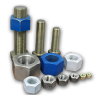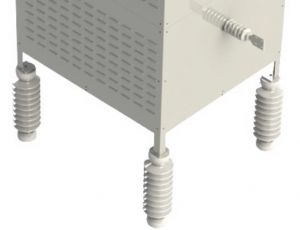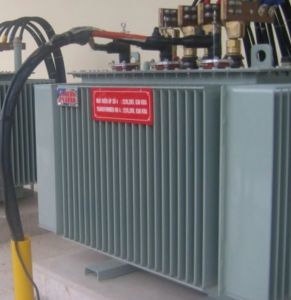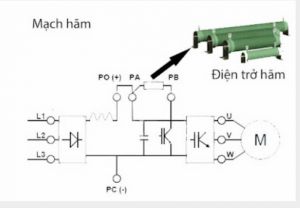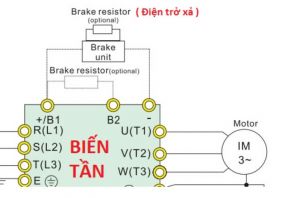Stud bolt and nut
Liên hệ
Để lại số điện thoại, chúng tôi sẽ gọi lại ngay
Stud Bolt and Nut
What is a stud bolt? Stud bolts for flanges consist of a fully threaded steel rod and two heavy hexagonal steel nuts. Stud bolts are inserted in the flange holes and tightened to seal a flanged joint. The number, the length, the diameter of the stud bolts required for a flanged connection depend on the flanges type, diameter, and rating
A stud bolt consists of one threaded steel rod and two (matching) hexagonal heavy steel nuts. Stud bolts and nuts are essential components of flanged joints, as they are key to seal flanged joints properly.
Stud bolts are available in multiple diameters and lengths combinations, metric and imperial, and in a variety of materials from carbon steel to alloy, stainless and nickel alloys (common grades are: ASTM A193 B7, L7, B8, B8M, B16, Alloy 20, Monel, Hastelloy, Inconel, 17-4PH, titanium, etc.). These grades are discussed below in this article.
The material of the hex steel nuts shall match the material of the threaded rod (generally, stud materials ASTM A193 match with nuts materials ASTM A194).
The ASME B16.5 specification covers stud bolts and nuts for ASME flanges (number, the diameter and the length of required stud bolts, i.e “flange bolt chart”) by flange diameter, pressure class and face finish (RF, FF, RTJ).
STUD BOLT (THREADED ROD)

A stud is a threaded rod that is inserted into the holes of the mating flanges and then tightened, at both ends, by applying a specific torque to the steel nuts.
Stud bolt length (OAL/FTF)
The length of the stud can be measured either as overall length (i.e., “OAL”) or as “first useable thread to first useable thread” (i.e., “FTF”).
The FTF length can be calculated by subtracting a quarter of an inch to the OAL length, and it the standard stud length measurement for piping applications.
Flanges of different diameter and rating require stud of different lengths and diameters.

Stud bolt thread pitch and thread series
The stud is threaded according to the specifications set by ASME B1.1.
The term “thread pitch” refers to the steepness of the angle of thread, which is measured in threads per inch.
The most used thread is the symmetrical thread pitch type with a “V-profile” (a 60-degree angle), as it is easier for the manufacturer to inspect compared to the non-symmetrical types.
Thread series relate to the diameter and pitch combinations, measured by the number of threads per inch (“TPI”) applied to a single diameter:
- Coarse thread series (UNC/UNRC): UNC is the most common type for screws, bolts, and nuts. Coarse threads are used for threads in low strength materials such as iron, mild steel, copper and softer alloy, aluminum, etc. The coarse thread is also more tolerant of adverse conditions and it facilitates quick assembly
- Fine thread series (UNF/UNRF): UNF is widely used for precision duties and when higher tensile strength is required (vs. the coarse thread series)
- 8-Thread series (8UN) is the elective threading method for several ASTM standards including A193 B7, A193 B8/B8M, and A320. This series is widely used for diameters from one inch upwards
Stud bolts covered by the ASTM A193 or A320 Specifications use 8UN for all diameters 1” and above, which means that there are 8 threads per inch for these sizes. For any other material grade, the buyer shall specify the thread pitch unless it is given by the applicable ASTM norm.
STUD BOLT MATERIALS
The most common materials for stud bolts (for flanges) are ASTM A193 (grade B7, B8, B8M, B8T), ASTM A453 (grade 660), ASTM A320 (grade L7, L7M), and ASTM A182 (duplex and super duplex bolting). For aggressive fluids and environments, stud bolts can be coated with Xylan, Xylar and other materials.
ASTM A193 STUD BOLTS (HIGH-TEMP.)
ASTM A453 STUD BOLTS (HIGH-TEMP.)
The ASTM A453 specification covers standards for Grade 660 (Class A, B, C, and D), Grade 651 (Class A and B), Grade 662 (Class A and B), and Grade 665 (Class A and B) of bolting materials, with ten classes of yield strength ranging from 50 to 120 KSI [345 to 827 MPa], for use in high-temperature service such as fasteners, pressure vessels and flanges.
ASTM A320 STUD BOLTS (LOW-TEMP.)
The ASTM A320 specification covers alloy steel and Stainless Steel stud bolts materials for low-temperature service.
ASTM A182 STUD BOLTS (Duplex and Super Duplex)
COATED STUD BOLTS
Stud bolts can be coated to increase the resistance to corrosion.
STUD BOLTS AND NUTS SELECTION (SERVICE vs. GRADE)
The material to use for stud bolts depends on multiple factors, the main ones are the material of the flanges and the pipeline design temperature:
Selling products:
'Nu-Bolt™ assembly for 1 1/2 inch pipe with Non-GrippingI-Rod® pipe
support material and 4 nuts, shipped unassembled.
- 1 x Sermagard U-Bolt ASTM A36 3/8-16 stock with polyshrink
- 1 x Non-Gripping I-Rod® support: cut and drilled
- 4 x Sermagard heavy hex nuts 3/8-16
HEX BOLT M12 X 40
BOLT M12 x 40 Lg HEX HEAD
M24 HEX HEAD SET SCREW 90 Lg
NUT M42 HEX
Sender
CÔNG TY TNHH SEAMATECH VN
456 XVNT, Ward25. Binh Thanh Dist , HCM City
Tel: (028)66816101 Fax: 02873072068
HOTLINE: 0776879680
Email: thanh@seamatech.net
The leading supplier for
- Fastener Stub Bolt Nut Screw
- Electric Control Automation: Resistor , Transmiter

Copyright 2018 © SEAMATECH VN

